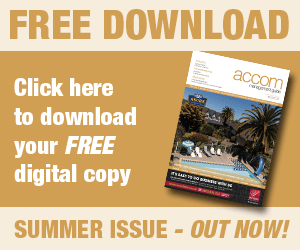Correct Software Essential
- Details
- Published Date
The key to making guest broadband a better guest experience is for hotels to have software that allows them to determine the guest charges, the time duration, data allocation and speed offered to each guest, says Keith Mitchell, business development manager for ReiverNet, an Australasian based broadband vendor operating in the Asia Pacific region.
"This is what enables hotels to provide a different internet experience to each guest (or each guest type) as determined by the hotel via the guest reservation information," he says.
"In addition to tailoring the guest experience, the software should also allow hotels to automate their business models on a day by day basis. The sector wants speed, software and support, flexibility and functionality with the right infrastructure because that's what enables hotels to deliver the highest average guest internet experience," says Mr Mitchell.
"Data is the biggest operational cost of providing guest internet services. Managing this cost very carefully to maintain the guest experience and a reasonable cost structure is an all important balancing act. A 'minimum cost/maximum speed' feature allows guests who have used their time allocation of data to select whether they wish to continue at the same speed and pay a cost per MB, or pay no further charge and have their connection slowed."
Mr Mitchell says less than 10 per cent of guests reach the 'trigger' point for a 'minimum cost/maximum speed' option, supporting the view that 30MB for a two hour plan and 100MB for a 24 hour plan are sufficient. "The key benefit of this feature is that guests select the experience they wish to continue with, which contrasts to what often happens when the software is not designed to deal with these situations, i.e. guests are automatically slowed, resulting in complaints. A good supplier will want to ensure hotels have the flexibility needed to win the business they want and maximise their revenue. This means flexibility, choice and transparency."
He says hotels need the choice to own their infrastructure and retain a larger share of revenue. As market conditions change, so too should the business models. A standard agreement should permit hotels to move between a revenue share or a fixed fee model, month to month, if the hotel selects. "In the current economic climate, it should be rare for hotels to be on a 100 per cent fixed fee model. As conditions change, hotels are more likely to elect to return to that model.
"Under a revenue share model, hotels should have the flexibility to allocate a percentage of their nightly room base to a fixed fee payment per room selected. This enables hotels to selectively package internet services for a select number of rooms, yet still generates revenue from other guests.
"Using a two-way interface, hotels can allocate rooms to guests they forecast will generate internet usage and, if the hotel selects to charge these guests, the hotel retains 100 per cent of the revenue and pays the supplier the fixed fee amount instead of the revenue share percentage. Hotels with a two way interface can automate the allocation and targeting of fixed fee rooms and thus have a better 'batting average' than those without," he said.


